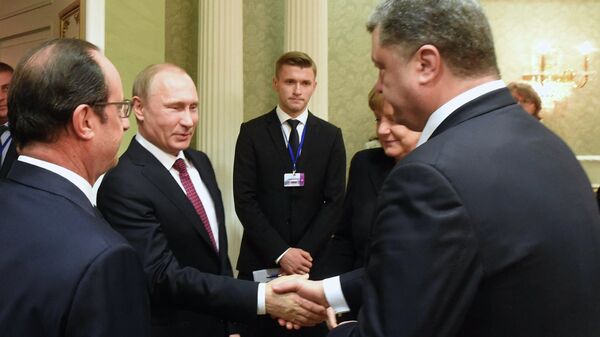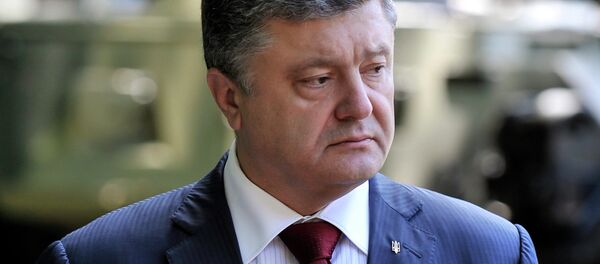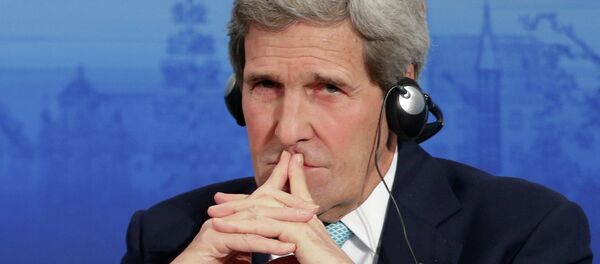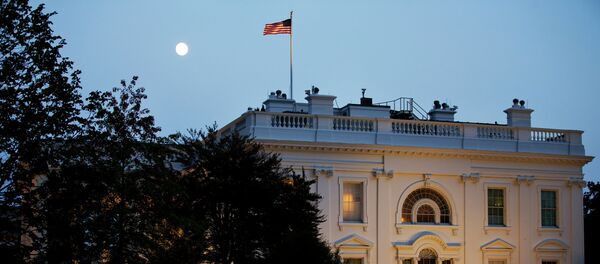On Wednesday, Russian President Vladimir Putin, Ukrainian President Petro Poroshenko, German Chancellor Angela Merkel and French President Francois Hollande met in the Belarusian capital of Minsk for almost 15 hours, and agreed on a package of measures to end the eastern Ukrainian conflict.
Should these measures be implemented — an unconditional ceasefire, constitutional reform by Kiev with a focus on Ukraine's decentralization, withdrawal of all foreign armed groups, equipment and mercenaries from eastern Ukraine — the EU sanctions currently in place against Russia would become redundant.
No Grounds for Sanctions
"If they don't, then what is the incentive for Russia to also engage in the peace process? It would be enormously poor form if they don't [remove the sanctions]," warned Richard Sakwa, associate fellow of the Russia and Eurasia programme at Chatham House.
The need for the European Union to clarify its position on removal of the sanctions has come into focus, especially since the US Department of State Secretary John Kerry, whose country is currently considering supplying lethal weapons to the Ukrainian army, officially stated on Thursday that the United States is "prepared to consider rolling back sanctions on Russia when the Minsk agreements of September 2014, and now this agreement, are fully implemented."
The snag, however, is that full implementation of these measures is a hard thing to achieve in the short-term, experts say.
Minsk-2 as Beginning
"Minsk-2 offers the perspective not of peace immediately, but of what we would call a peace process," Sakwa told Sputnik.
Arkady Moshes said he expresses "cautious hope, not optimism but hope. This agreement reflects the understanding of the parties of the futility of hostilities' continuation."
This understanding, however, does not necessarily mean the immediate implementation of the Minsk measures. "Implementation of this agreement is not guaranteed for any of the points," the expert added, pointing to the fact that even the start of the ceasefire is scheduled for February 15, meaning the warring parties have the opportunity to fight for two more days.
The expert from the Finnish Institute of International Affairs said there is no guarantee that independence supporters in the east of Ukraine would come to a consensus with Kiev on changes to the country's Constitution.
Yet another obstacle to the smooth implementation is the fact "that there's a war party dominating in Kiev," Richard Sakwa told Sputnik. According to the expert, the "war party" makes it hard "to focus on peace."
Despite these stumbling blocks, it is hoped that sooner or later the measures outlined in the Minsk agreement will be implemented. If this is achieved, Moscow will be waiting for a prompt reaction from the EU in the form of a sanctions' lifting.




